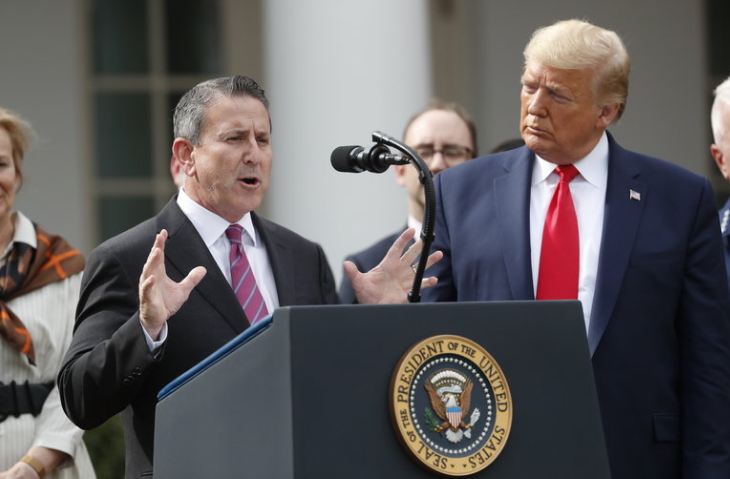One month ago today, President Trump declared a national emergency.
In a Rose Garden address, flanked by leaders from giant retailers and medical testing companies, he promised a mobilization of public and private resources to attack the coronavirus.
“We’ve been working very hard on this. We’ve made tremendous progress,” Trump said. “When you compare what we’ve done to other areas of the world, it’s pretty incredible.”
But few of those promises have come to pass.
NPR’s Investigations Team dug into each of the claims made from the podium that day. And rather than a sweeping national campaign of screening, drive-through sample collection and lab testing, it found a smattering of small pilot projects and aborted efforts.
In some cases, no action was taken at all.
Target did not partner with the federal government, for example.
And a lauded Google project turned out to not to be led by Google at all, and then once launched was limited to a smattering of counties in California.
The remarks in the Rose Garden highlighted the Trump administration’s strategic approach: a preference for public-private partnerships. But as the White House defined what those private companies were going to do, in many cases it promised more than they could pull off.
“What became clear in the days and weeks or even in some cases the hours following that event was that they had significantly over-promised what the private sector was ready to do,” said Jeremy Konyndyk, senior policy fellow at the Center for Global Development.
The White House declined to comment on this story.
Drive-Through Testing Largely Nonexistent At Retail Partners
During the Rose Garden address, the president introduced a series of leaders from major retailers to suggest there would be cooperation between the federal government and private sector companies for drive-through testing.
“We’ve been in discussions with pharmacies and retailers to make drive-through tests available in the critical locations identified by public health professionals,” President Trump said.
NPR contacted the retailers who were there and found that discussions have not led to any wide-scale implementation of drive-through tests.
In the month since the announcement, Walmart has opened two testing sites — one in the Chicago area and another in Bentonville, Ark. Walgreens has opened two in


